Newsletter 03 Oct 2022
Environment: What’s Up in GENeva | 3 – 9 October 2022

The Geneva Environment Network’s weekly newsletter includes the latest information on the global environmental agenda, main events, job vacancies, learning opportunities, as well as other useful resources and updates. Stay tuned and follow us also on Twitter, Facebook, LinkedIn, Youtube, or visit our website regularly for additional updates.
Image of the week | A Sanderling – small long-distance migratory shorebird – on the Baby-Plage Beach. This migratory species, breeding mostly in Siberia, moves south with different breeding populations, a trip of at 18,000 kilometers twice per year. World Migratory Bird Day – celebrated on the second Saturday in May and the second Saturday in October – is the occasion to raise awarness on migratory birds and the need for international cooperation to conserve them. Photo © Etat de Genève, Gottlieb Dandliker.
Environment @ 51st Session of the Human Rights Council and Beyond
The 51st session of the Human Rights Council is expected to conclude this week in Geneva. Environmental-related issues on the agenda include:
- HRC51 Side Event | Economic, Social and Cultural rights & Just Transition | Chile, EU, Finland, Global Initiative for Economic, Social and Cultural Rights, AIDA, PSI | 3 October 2022 | 13:00 – 14:00 CEST | Room XXV, Palais des Nations
- HRC51 Side Event | Protecting the Frontline: Good practices to support environmental human rights defenders across the world | UNEP, OHCHR, URG, GEN | 5 October 2022 | 9:00 – 10:00 CEST | Room XXV, Palais des Nations & Online
This Side Event will launch the executive summary of a new publication and present the initiatives promoted by state and non-state actors, intergovernmental organizations, environmental human rights defenders and their networks. The event also contributes to efforts by the Geneva Road Map to ensure the effective implementation of the right to act for the protection of the environment and to promote free and safe spaces for information and discussion on environmental matters.- The launch of this report comes a few days after new data depicting a worrisome picture of the situation of Environmental Human Rights Defenders (EHRDs) around the globe was issued. According to the latest report Decade of defiance – Ten years of reporting land and environmental activism worldwide, a total of 1,733 people have been killed over the past ten years. In 2021 only, an average of four EHRDs per week were killed. → Read more
- Michel Forst, the first Special Rapporteur on EHRDs under the Aarhus Convention also condemned the repression and violence against EHRDs all over the world in the latest ONU Info Genève podcast (in French).
Last week, the Council continued to address issues at the nexus of human rights and the environment, including:
- Interactive dialogue with the Advisory Committee, where participants discussed the draft report on “new climate technologies”. CIEL, FIAN & Earthjustice expressed concerns about the use of vague terminology rather that “geoengineering”, and the lack of consultation of indigenous people in the preparation of the report.
- Panel discussion on the Future of the Right to Work in Connection with Climate Change Actions which placed an emphasis on the importance of international cooperation and partnerships to identify major challenges, experiences and best practices.
- Launch of the 8th Glion Human Rights Dialogue Report, summarizing the outcomes of the forum held in May 2022 on “The right to a clean, healthy, and sustainable environment: what does it mean for States, for rights-holders and for nature?“.
→ Our update on HRC51 provides the latest news and highlights the environmental-related activities of this session.
Human Rights News From Abroad
Following the recognition of the human right to a clean, healthy and sustainable environment at HRC & UNGA, the Council of Europe recommended that all 46 Member States actively consider the recognition of this right at the national level. This is a promising step to ensure implementation of the right to a healthy environment in the EU space.
The UN human rights committee ruled that the Australian government violated the rights of the Indigenous people. By failing to act on the climate crisis, the government has also failed to adequately protect Torres Strait islanders, and violated their right to enjoy their culture and lives. This groundbreaking decision requests the government to compensate the Indigenous people for the harm they have suffered. → Read more.
Advancing Sustainable Finance in Switzerland and Around the Globe
Sustainable finance is high on the the agenda this week, as the finance industry, United Nations, international organizations, NGOs, academia, and governmental experts are convening at the International Conference Centre of Geneva and online for 2022 edition of Building Bridges. The event will feature a high-level summit, over sixty crowd-sourced events organized by various actors from Geneva and beyond, an interactive space with networking opportunities, and a hackathon organized in collaboration with the University of Geneva.
These events are held ahead of the UNEP FI Global Roundtable 2022, which will take place next week. Held under the theme of “Transforming Finance, Accelerating Change”, this online event will bring together decision-makers, experts and thought leaders on a virtual event platform to help shape approaches to integrating sustainability across the banking, insurance and investment industries. Region-focused sessions will take place this week.
Launch of Minamata Online Season 3
Originally conceived by the Minamata Convention on Mercury as a way to continue strengthening networks during the COVID-19 pandemic by assisting its Parties and key constituencies through online means, Minamata Online is a series of digital engagement designed to further clarify the Convention’s provisions, as well as policy and scientific aspects. The 3rd series of webinars focusing on implementation support and review, mercury science, and COP-5 preparations, is being launched this week. The first webinar on mercury science, “Technical guidelines on mercury waste management”, will take place on 5 October.
Climate Change: Science and Impacts
57th session of the IPCC
At the 57th session of the IPCC last week, delegates mainly discussed the postponement of the target date for completion of the Synthesis Report. The report, originally set to be approved at that session, has been rescheduled for approval in March 2023. → Read more about the outcomes of IPCC-57 in the Earth Negotiations Bulletin.
Glaciers
Glaciers are still making the headlines with unprecedented retreating rates. This week, the Swiss Academy of Science announced 2022 has been the worst year for glaciers so far, with more than 6% of ice volume lost. Germany also lost one of its five remaining glaciers: the hot summer blew one last hit at the Schneeferner, which ice sheet is now under 2 meters thick and will melt away in the next one or two years. → For more news about the status of the Swiss glacier, follow GLAMOS.
From 7 to 9 October 2022, the 6th International Glacier Film Festival in Geneva will take a deeper dive into the catastrophic impacts of climate change on glaciers. Besides film screenings, the event will also include a round-table on how can cities adapt to climate change.
→ More information in our update on the unprecedented rates of mountain glacier melting and how International Geneva addresses the problem.
Loss and Damage
Ahead of the Sharm el-Sheikh Climate Change Conference (UNFCCC COP27), discussions are growing around compensation for loss and damage. An opinion piece – Q&A: Should developed nations pay for ‘loss and damage’ from climate change? – launched last week by Carbon Brief, reviews this issue, which is fast emerging as one of the most critical issues at the UN climate talks, although it has been discussed for more than 30 years.
Climate change is also threatening lives due to sea level rise, with up to 410 million people globally expected to be at risk of coastal flooding by 2100. In a new climate justice case, citizens from Pari Island in Indonesia are taking cement company Holcim to court. The plaintiffs are demanding a drastic measures to reduce emissions, compensation for the climate induced damages, and a contribution to adaptation measures on Pari island. 11% of the island’s surface is already submerged by the sea, and this could expand to the entire island by 2050. According to the Climate Accountability Institute, Holcim is one of the 108 companies who are collectively responsible for 70% of all historical industrial CO2 emissions.
Facing the Energy Crisis
As winter is approaching, governments in Europe and beyond are preparing to face potential energy shortages. IRENA Director-General Francesco La Camera highlighted last week that the risks to the stability of energy supplies would support the global shift away from fossil fuels. Renewables can indeed beneficial for both energy independence and the environment. Earlier this month, a new IRENA and ILO report confirmed the growth in renewable jobs despite multiple crises, while calling improved strategies to create stable supply chains and decent jobs.
Increasing energy resilience will be at the center of discussions of this week’s UNECE Sustainable Energy Expert Week. A series of substantive discussions on improving energy efficiency in buildings and in industry and on unlocking energy efficiency potential through digitalization will take place.
Recent data also pointed out to the links between the energy crisis and plastic production, which accounts for 9% of EU fossil gas consumption. The report prepared by Break Free From Plastics and CIEL indicates emergency measures in the EU in face of expected gas shortages should include restricting non-essential industry oil and gas use, including the feedstock used to create single-use plastics and packaging. As the EU aims to reduce its reliance on Russian gas, cutting down on plastic production could help address energy, climate and pollution issues at once.
Plastics and petrochemicals are the largest industrial oil, gas, and electricity users in the EU, with nearly 40% of that energy going towards producing plastic packaging alone. Not including this sector in the “Save Gas for a Safer Winter” plan is a serious oversight. While families and small businesses are facing skyrocketing energy bills, the petrochemicals industry is wasting scarce resources to produce unnecessary single-use plastic, fueling the EU energy crisis.
— Delphine Lévi Alvarès, European Coordinator of the Break Free From Plastic movement. Read more in CIEL’s press release.
Ending Plastic Pollution: Towards Punta del’Este
As the beginning of the negotiations on a global treaty to end plastic pollution approach, the conveners of the Geneva Beat Plastic Pollution Dialogues invite you to save the date for the Briefing on the 1st meeting of the Intergovernmental Negotiating Committee to Develop an International Legally Binding Instrument on Plastic Pollution (Plastic Pollution INC-1) to be held in hybrid format on 2 November. The briefing, held a few weeks ahead of the INC-1 meeting in Punta del’Este, will provide updates on the preparations of this important event and how stakeholders can engage in the process.
Meanwhile, our Plastics and the Environment Series continues to provide the latest updates and news on plastic pollution and the INC process. Recent news include:
- Chemical recycling grows — along with concerns about its environmental impacts Environmental Health News | 28 September 2022
- Recycling isn’t enough to slow plastic pollution, WA scientists say | Crosscut | 28 September 2022
- Exclusive: U.S. seeks allies as split emerges over global plastics pollution treaty | Swiss Info | 27 September 2022
- Plastic pollution: Shipping sector urged to crack down on nurdle spills | Edie | 27 September 2022
Happening Abroad
9th Environment for Europe Ministerial Conference
The Ministers of Environment of the pan-European region are meeting this week for the 9th Environment for Europe Ministerial Conference. High-level delegations from more than 70 countries and around 1000 participants from the public and private sectors, academia, youth and and civil society organizations, are convening from 5 to 7 October 2022, in Nicosia, Cyprus, to consider the progress achieved in environmental protection, advancing sustainable development and greening economies, since launching their Environment for Europe process in 1991. The Conference, organized by the Republic of Cyprus with the support of the United Nations Economic Commission for Europe (UNECE), which provides the secretariat for the process, focuses on three main themes: Sustainable Infrastructure, Sustainable Tourism and Education for Sustainable Development.
A high-level briefing ahead of the 8th ministerial conference organized by the Geneva Environment Network Secretariat, UNECE and the Czech Republic was held in the Palais des Nations in Geneva on 23 September 2022, which looked back at the visionary initiative and 30 years of achievements of the process. → Rewatch the briefing and find relevant documents on our page.
Science-Policy Panel to contribute further to the sound management of chemicals and waste and to prevent pollution
The first part of the first session of the ad hoc open-ended working group (OEWG) on a science-policy panel to contribute further to the sound management of chemicals and waste and to prevent pollution is taking place on 6 October 2022 in Nairobi and online.
What (Else) Should I Read Next?
- Scientists urge top publisher to withdraw faulty climate study | Phys.org | 27 September 2022
A study earlier this year in The European Physical Journal Plus is receiving backlash from climate scientists from presenting a distorted account of the link between climate change and extreme weather events. The article indeed reaches conclusion that contradict the authoritative report from the IPCC by manipulating and cherry-picking data.
- Environmental technologies in focus on World Maritime Day 2022 | IMO | 27 September 2022
On the occasion of World Maritime Day celebrated on 29 September, the International Maritime Organization put on spotlight the role of emerging technologies to support a green transition of the maritime sector into a sustainable future.
- Oil giants behind FSO Safer oil revealed | Greenpeace | 27 September 2022
A new investigation uncovers the responsibility of large multinational oil companies in the environmental risks of the FSO Safer. The neglected ship holds more than 1.14 million barrels of oil, and is posing severe a environmental and humanitarian threat. While funding is lacking to safely remove the barrels from the decaying vessel, Greenpeace points out that the responsible companies have announced record profits in 2022.
- 18th Meeting of the Persistent Organic Pollutants Review Committee to the Stockholm Convention (POPRC-18) | ENB | Outcomes from 26 to 30 September 2022
Through its expert reviews, the Committee advanced all but one of the chemicals under consideration to their next stage of being labelled as a persistent organic pollutant. Two chemicals were recommended for listing under the Stockholm Convention: Dechlorane Plus, a flame retardant, and UV-328, an ultraviolet filter used in plastics. - Le Bioparc Genève va déménager de Bellevue à Thônex | Léman Bleu | 29 September 2022
Currently struggling from lack of space and old facilities, the Bioparc Geneva will move to a new site in Thônex. The park hosts around 250 animals, a third of which are from endangered species. → Read more about conservation at the Bioparc Geneva.
Events
See all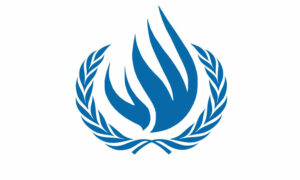
Body Meeting
51st Session of the Human Rights Council | HRC51
12 Sep – 07 Oct 2022
Palais des Nations
HRC


Body Meeting
Sustainable Energy Expert Week
03 – 07 Oct 2022
Palais des Nations, Room XXII & Online
UNECE


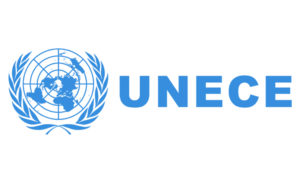
Body Meeting
In Focus | SDG 11 – Inclusive, safe, resilient and sustainable cities require sustainable and inclusive urban design and architecture
03 Oct 2022 09:30 – 12:30
Palais des Nations & Online
UNECE

Body Meeting
Implementation Committee (Espoo Convention) | 54th session
04 – 07 Oct 2022
Palais des Nations
EIA Convention
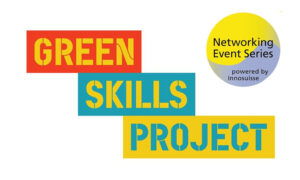
Workshop
Green Skills Project “vers une économie circulaire”
04 – 05 Oct 2022
Campus Biotech
Nomads Foundation
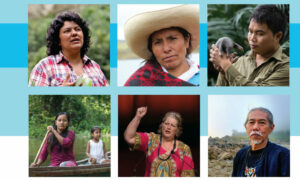
Conference
HRC51 Side Event | Protecting the Frontline: Good Practices for Supporting Environmental Human Rights Defenders
05 Oct 2022 09:00 – 10:00
Palais des Nations | Room XXV & Online
URG, UNEP, OHCHR, GEN

Virtual
Technical guidelines on mercury waste management | Minamata Online 3
05 Oct 2022 09:00
Minamata Convention on Mercury

Local
Climat, sortir de l’inaction | Des preuves pour combattre la désinformation ?
05 Oct 2022 19:00 – 21:00
Boulevard Carl-Vogt 101, 1205 Genève, Suisse
Association Climat Genève

Cinema
Festival International du Film sur les Glaciers (FIFG 2022)
07 – 09 Oct 2022
Rue Jean-Charles Amat, 24, Geneva, Switzerland
Mission Planète Terre



Virtual
Managing global temperature overshoot | The role of solar radiation modification
07 Oct 2022 12:30 – 13:30
Online | Webex
IHEID

Body Meeting
2nd Meeting of the High-Level Coalition on Health and Energy
07 Oct 2022 14:00 – 16:00
WHO
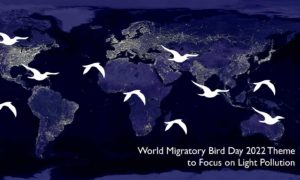
Jobs
See all
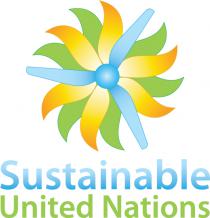




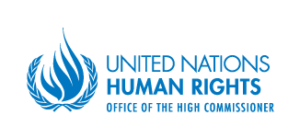
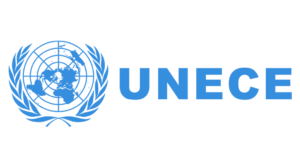
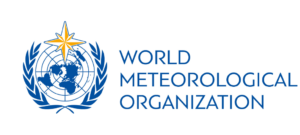

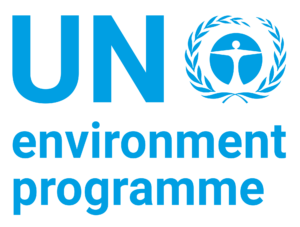
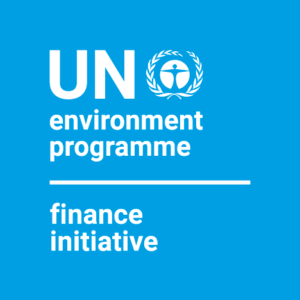


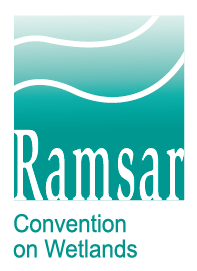
Updates
See all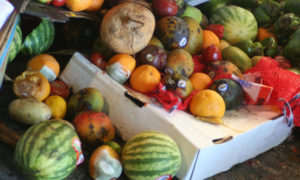
18 Apr 2024
Food Loss and Waste and The Role of Geneva
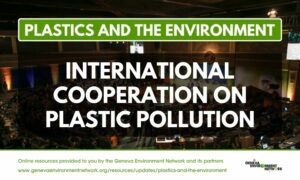

03 Dec 2023
Sustainable Finance in Geneva


03 May 2024
World Migratory Bird Day

